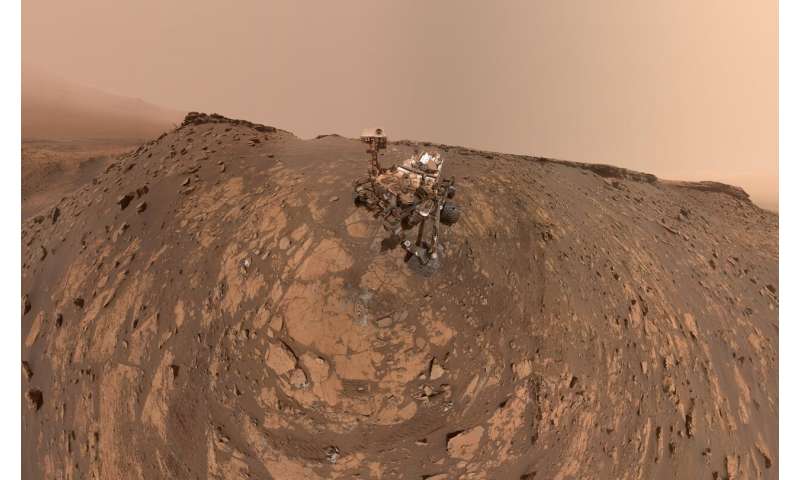Best of Last Week: Curiosity Rover selfie, improvements in batteries, and first test of COVID-19 vaccine

It was a good week for space science as a team at NASA's Jet Propulsion Laboratory report that the Mars rover Curiosity took a selfie before setting off on a record climb. The rover then crested Greenheugh Pediment, a broad sheet of rock atop a hill, setting a record for the steepest terrain the rover has ever climbed. Also, a team with members affiliated with institutions across the U.S. discovered a path to razor-sharp black hole images—performing calculations on nested rings in images from the Event Horizon Telescope.
In technology news, a team at the University of York exposed vulnerabilities of password managers—they found some may be vulnerable to cyber-attacks by fake apps. Also, a startup 3-D printing firm was instrumental in saving the lives of COVID-19 victims—workers at Issanova printed Venturi valves needed for breathing devices at a hospital in Italy. And a combined team from the University of California Berkeley and the Lawrence Berkeley National Laboratory devised a strategy to achieve ultrahigh power and energy density in lithium-ion batteries—it involved the use of two bulk oxyfluorides with a partial spinel-like order. Also, a team at the University of Tokyo developed a cyclic phosphate-based electrolyte for safe and high voltage lithium-ion batteries—one that is nonflammable.
In other news, a team in China asked whether blood type matters when it comes to coronavirus. They found that is does—those with type A blood, they discovered, were more likely to contract and die from the disease. Also, a team at the University of Washington found that 'sushi parasites' have increased 283-fold in the past 40 years—most of which are worms. And a team at Rutgers University announced that they had discovered the origins of the building blocks of life—early protein structures that are responsible for metabolism.
And finally, a team at Kaiser Permanente Washington Research Institute in Seattle gave the world a bit of hope when they announced the first shot to the first person in a test of an experimental COVID-19 vaccine. These initial tests are to ensure the vaccine does not have harmful side effects.
© 2020 Science X Network